Are you ready to take the next step in your career with a meaningful purpose? Crafting a compelling letter for a non-profit job application can be your ticket to making a genuine impact in the community. It's all about showcasing your passions and experiences that align with the organization's mission. Let's dive in and explore how you can create a standout letter that resonates with hiring managers and captures your unique strengths!
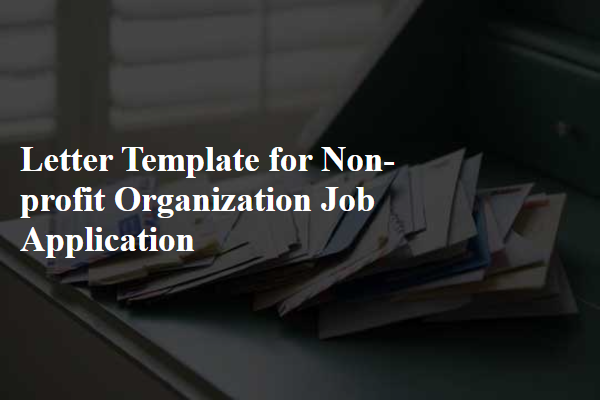
Organization's mission alignment
The mission alignment of non-profit organizations, such as the American Red Cross or Habitat for Humanity, plays a crucial role in community engagement and social impact. Organizations often focus on issues like disaster relief, housing, or education, aiming to address specific needs within local and global communities. For instance, the American Red Cross, founded in 1881, emphasizes emergency assistance and disaster response, directly helping millions of individuals impacted by crises. Simultaneously, Habitat for Humanity, established in 1976, works to provide affordable housing options, empowering families through homeownership. Understanding and connecting with these missions can significantly enhance employee motivation and long-term success, as committed team members drive initiatives aligned with organizational values and goals. Volunteers and staff alike contribute to creating meaningful change, fostering community resilience, and promoting social justice through their dedication to the organization's objectives.
Relevant experience and skills
A non-profit organization operates within a framework that focuses on social causes, community support, and charitable contributions. Relevant experience in this sector often includes volunteer work with organizations such as Habitat for Humanity or local food banks, where individuals develop skills in project management, fundraising, and community outreach. Skills that enhance job applications in non-profits include proficiency in grant writing, knowledge of social media marketing for advocacy, event coordination, and stakeholder engagement, which are essential to drive mission impact. Familiarity with tools like Salesforce for Nonprofits or Mailchimp can also distinguish candidates, enabling effective communication strategies and donor relationship management. Understanding the regulatory landscape that governs non-profits, such as IRS compliance for 501(c)(3) organizations, is crucial for maintaining operational integrity and transparency.
Enthusiasm for role and cause
A passionate individual can significantly contribute to a non-profit organization's mission by demonstrating enthusiasm for both the role and underlying cause. Engaging in community outreach programs, such as local food drives or environmental clean-up events, showcases commitment to the organization's objectives. Volunteering experiences with similar causes can enhance an applicant's credibility and highlight relevant skills, such as event planning or fundraising. An understanding of the organization's impact--like statistics on improved community wellbeing or environmental sustainability initiatives--enhances the applicant's case. Articulating a sincere desire to advocate for change within specific demographics or geographic areas demonstrates alignment with the organization's values and long-term goals.
Cultural fit and values
A non-profit organization emphasizes its commitment to community engagement and social equity. Candidates seeking to contribute should align with core values such as empathy, integrity, and collaboration. Cultural fit encompasses the promotion of diversity and inclusivity, prioritizing volunteer-driven initiatives that address local needs. Understanding the organization's mission, which often involves uplifting marginalized voices and fostering sustainable change, is essential for applicants. Emphasizing experience in community service and passion for advocacy enhances the alignment with the organization's values. Furthermore, showcasing adaptability in dynamic, resource-constrained environments reinforces the candidate's dedication to the non-profit sector.
Clear and concise communication
Non-profit organizations rely on clear and concise communication to effectively convey their mission and engage supporters. This involves crafting messages that resonate with diverse audiences while emphasizing core values such as empathy, community service, and social responsibility. Utilizing platforms like social media (Facebook, Twitter, Instagram) enhances outreach and allows for real-time interaction. Employing storytelling techniques can highlight impactful events, such as successful campaigns or volunteer efforts, fostering a deeper connection with donors and beneficiaries. Additionally, clear communication aids in organizing fundraising events, ensuring all logistical details, timelines, and objectives are conveyed succinctly to maximize participation and support.

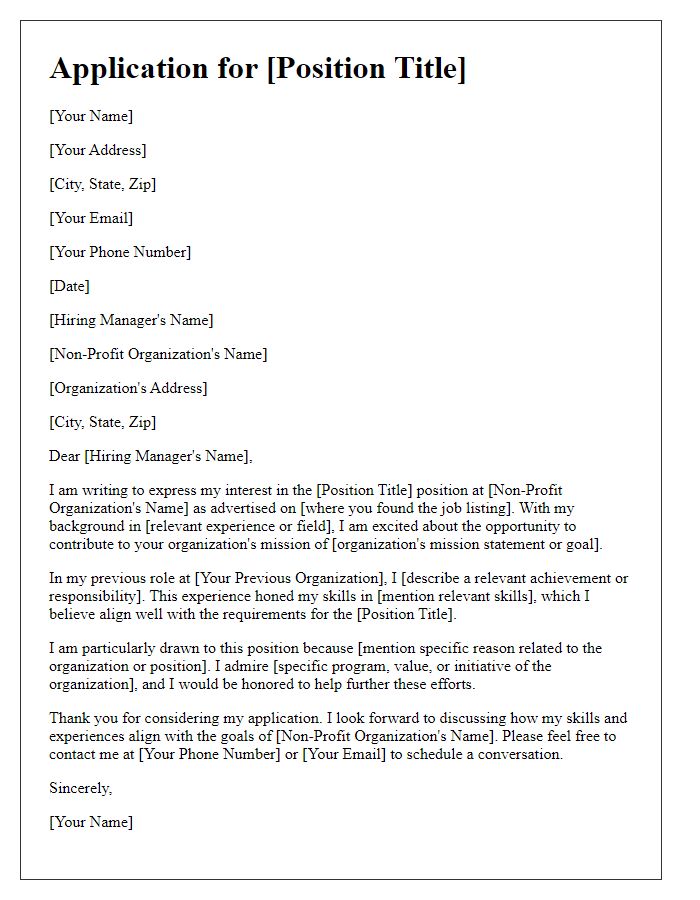
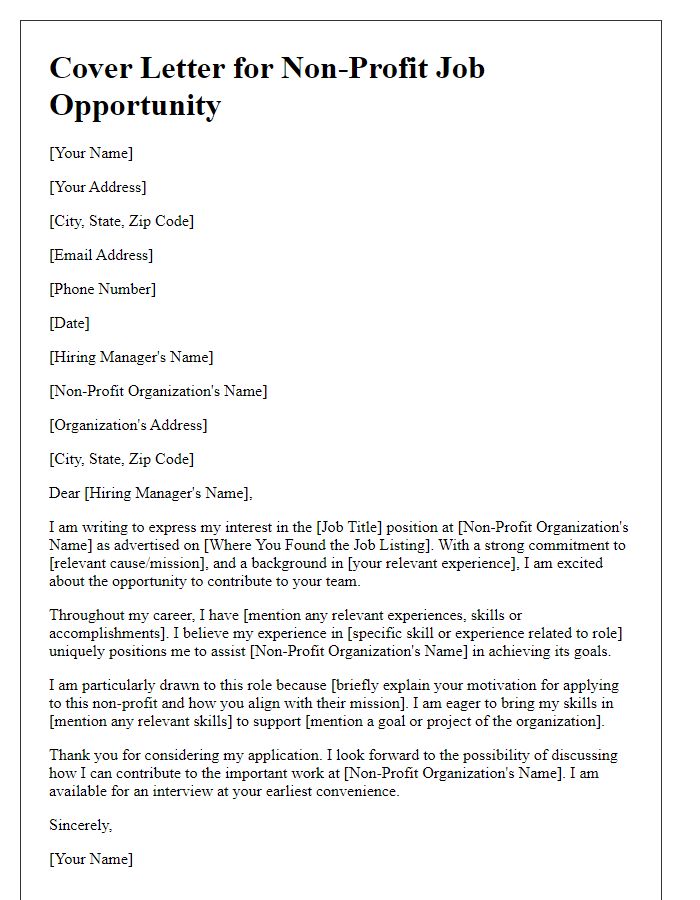
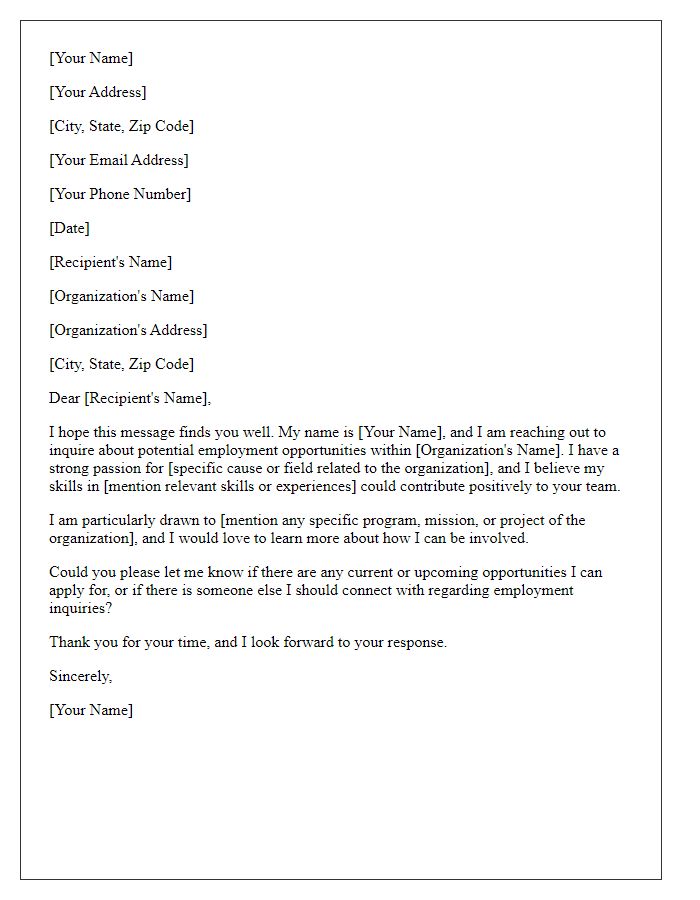
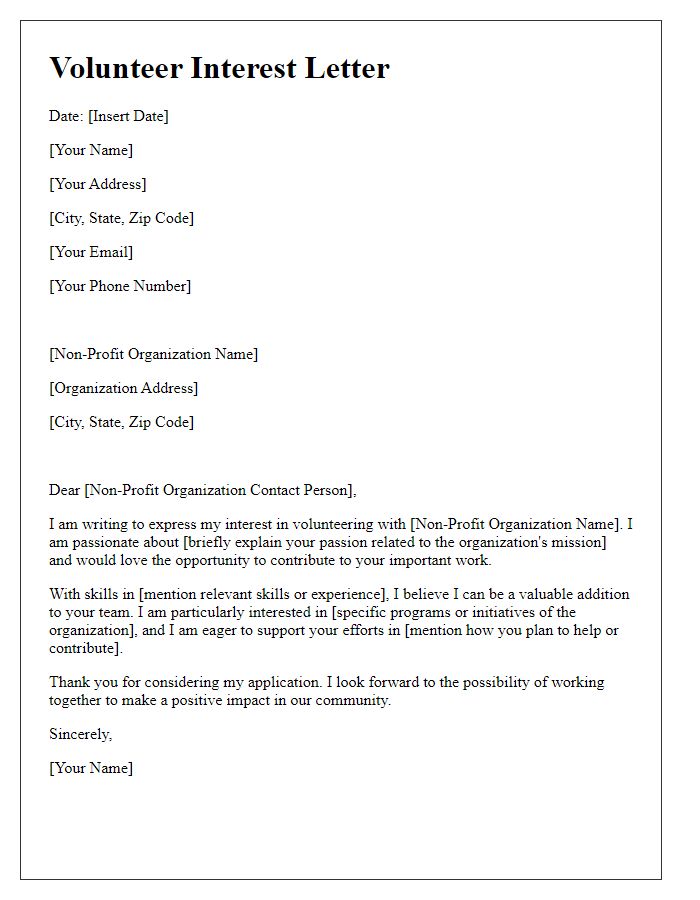
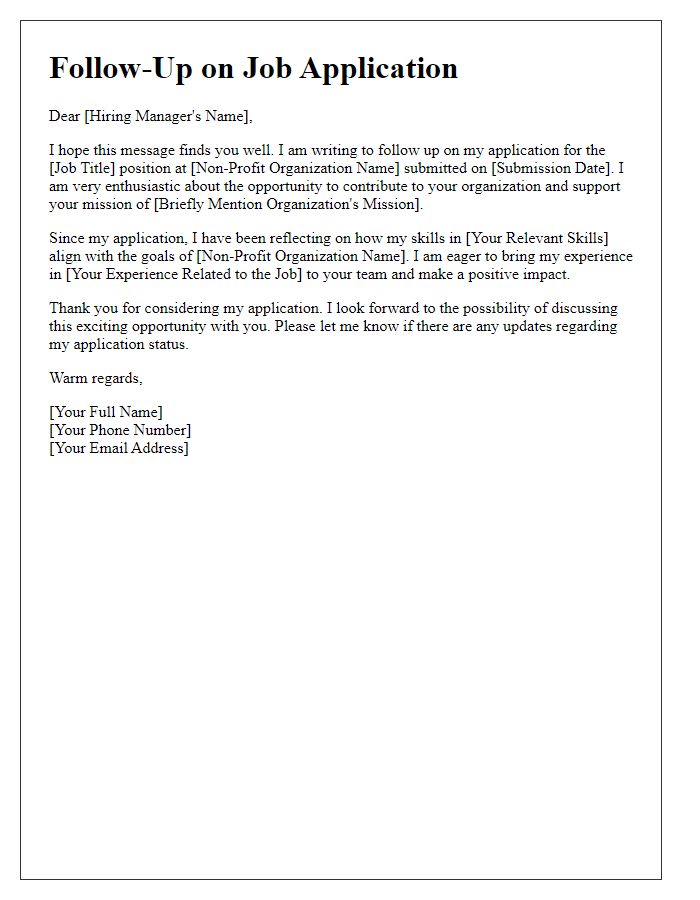
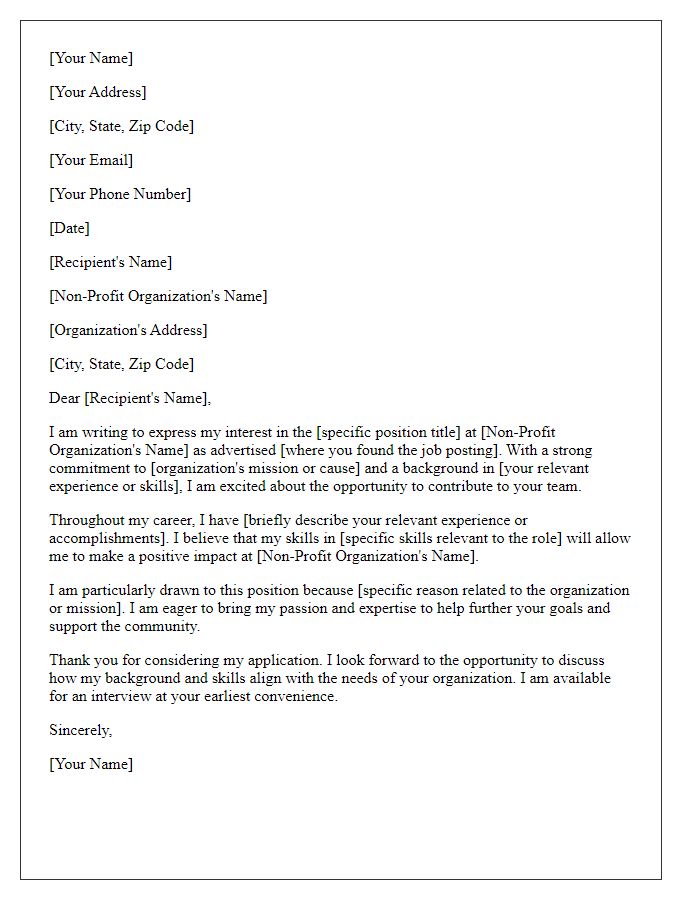
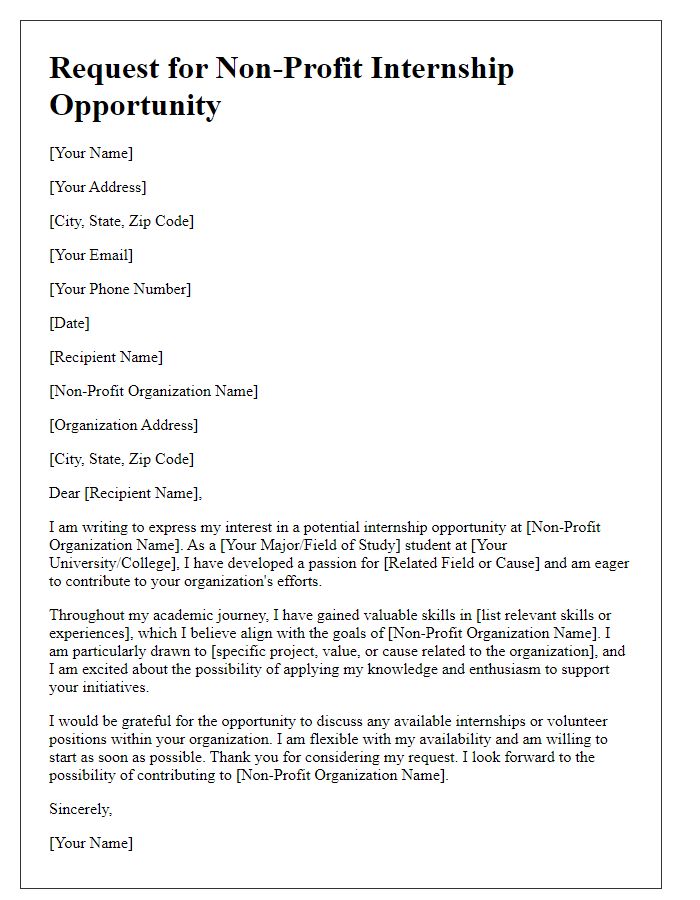
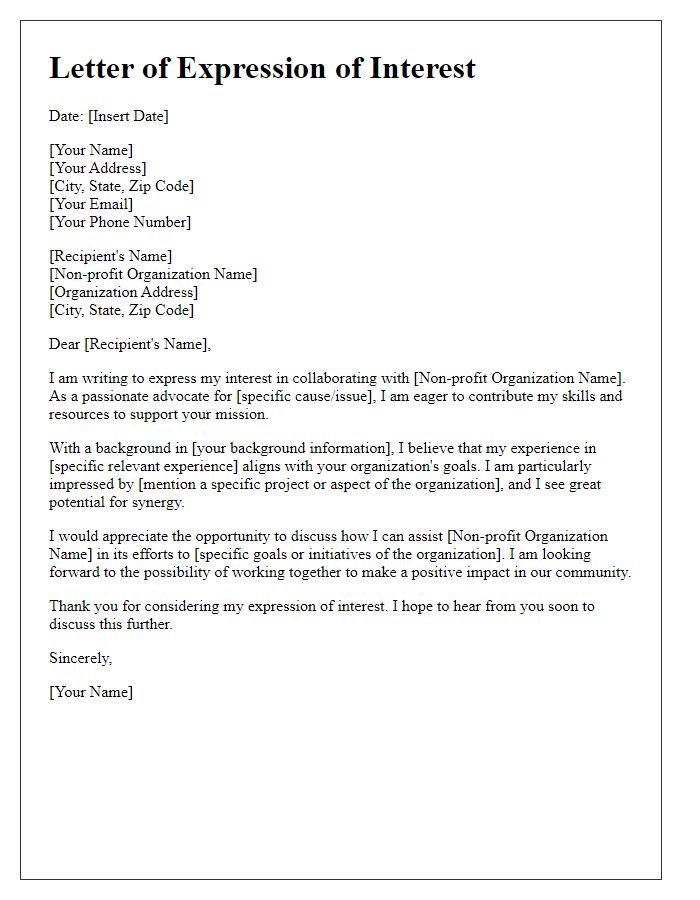
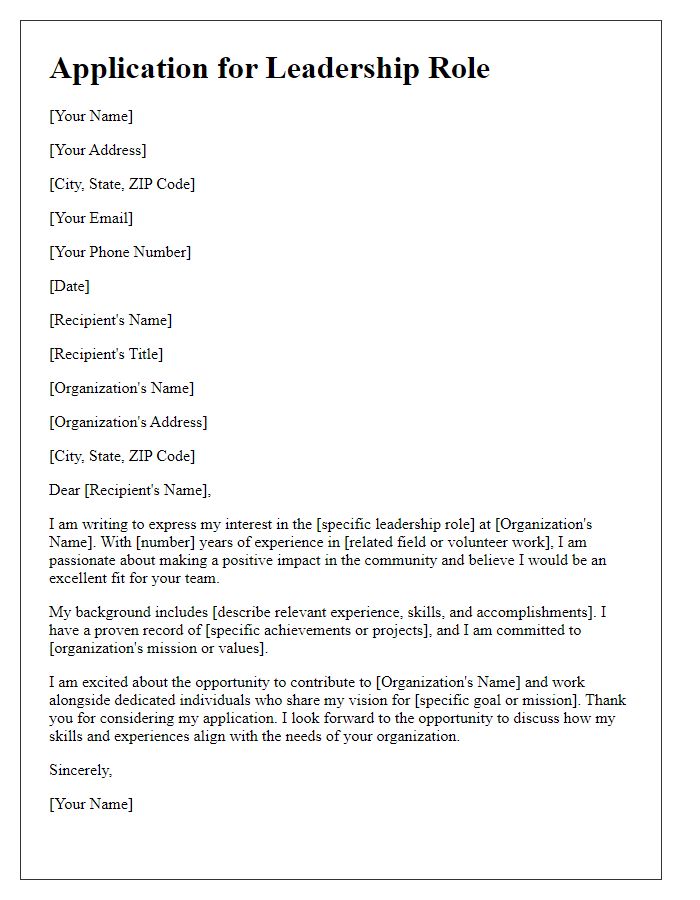
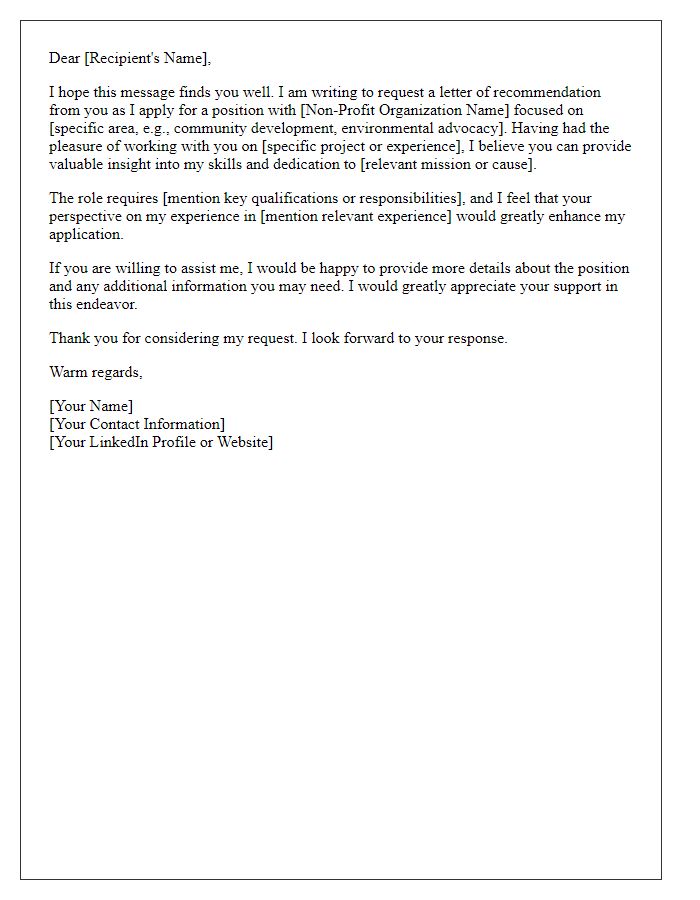


Comments